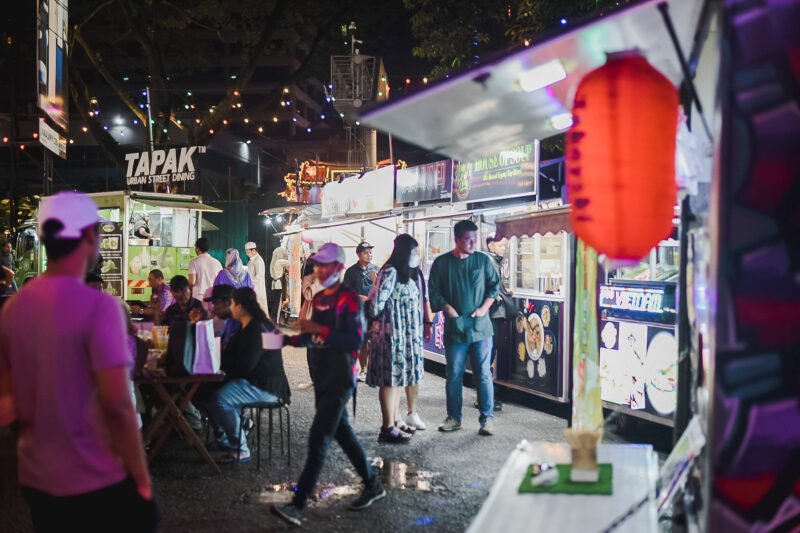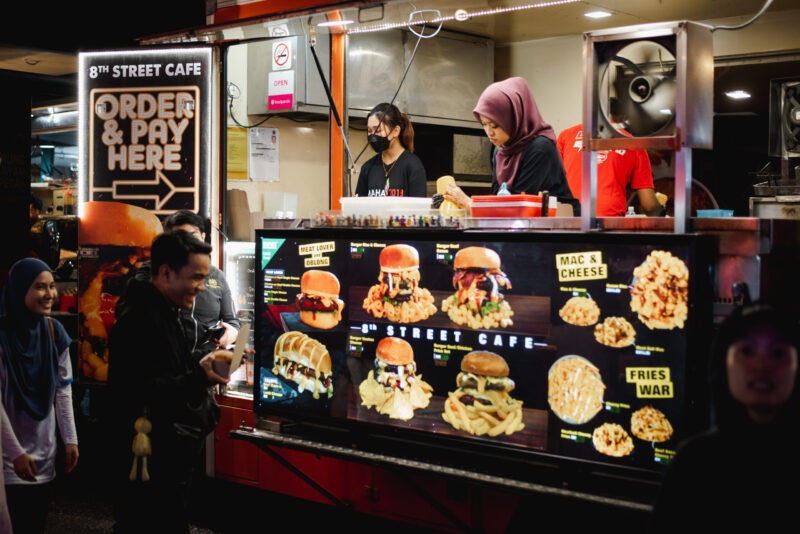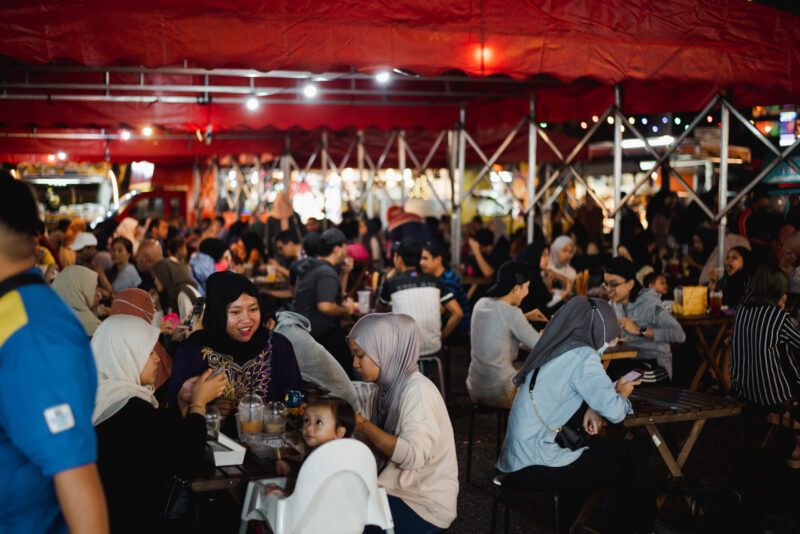
This site
is mobile
responsive

At first glance, the lot along Jalan Ampang—just a stone’s throw from the iconic KLCC skyline—may appear to be a typical urban space. But by nightfall, it transforms into something extraordinary: a vibrant street-dining park powered not by restaurants or corporations, but by food trucks – locals, mostly young entrepreneurs. Dozens of them selling sumptuous Malaysian fusion foods.
This is TAPAK Urban Street Dining (TAPAK), located on land leased from MIDA, has become a quietly powerful success story in community-based entrepreneurship.
MIDA’s decision to lease the land at Jalan Ampang to TAPAK was more than a real estate transaction. Rather than leaving the lot idle or outsourcing it to large developers, the land was entrusted to a local startup with a simple idea: use food trucks to empower micro-entrepreneurs. It worked!
Since setting up at this prime location, TAPAK has grown into a nightly marketplace with over 30 food trucks, drawing office workers, tourists, and KL residents looking for local flavour and urban authenticity. The space thrives on high footfall, but its real story lives behind the counters of those trucks.
Most of TAPAK vendors aren’t seasoned restaurateurs. They’re former delivery riders, home cooks, and first-time business owners who would never qualify for a commercial shop lot.
But here, they can operate under clear permits, at an affordable cost, and with a built-in customer base. That’s business made accessible.
“Before TAPAK, I sold nasi lemak from my home kitchen. Now I serve over 200 plates a night. It’s changed everything for my family,” says Smoke MOJO.
“TAPAK has made business easier by managing all the facilities and marketing. We can focus more on providing better quality to our customers,” says Faiz FANADA.
For MIDA, this is economic development at the grassroots level, creating real pathways for income generation, testing innovation in the F&B sector, and stimulating night economy—all from a plot of land.

Since launching in 2016, TAPAK has expanded to six branches- Stadium KL, Subang, Cyberjaya, PJ, Shah Alam, and of course, the landmark site at Jalan Ampang near KLCC. Yet this Jalan Ampang location holds symbolic value.
“TAPAK has developed its own booking app to ensure seamless growth and expansion. This allows transparency in all payments and bookings while keeping all records manageable. Entrepreneurs will grow as TAPAK grows,” says Syed Izmir, Managing Director of TAPAK.
By offering its land to the right kind of partner, MIDA has enabled a model of development that fits squarely into its CSR vision—supporting local innovation, youth entrepreneurship, and SME growth in one fell swoop.
The impact doesn’t end with vendors. TAPAK’s eco-conscious efforts—such as waste segregation, community cleanliness, and security—keep the space family-friendly. Meanwhile, the rotating lineup of food trucks ensures diversity and keeps young entrepreneurs in motion.
What was once a quiet, undeveloped lot has become a case study of how a simple lease can power complex outcomes—community engagement, economic stimulation, and social upliftment.
